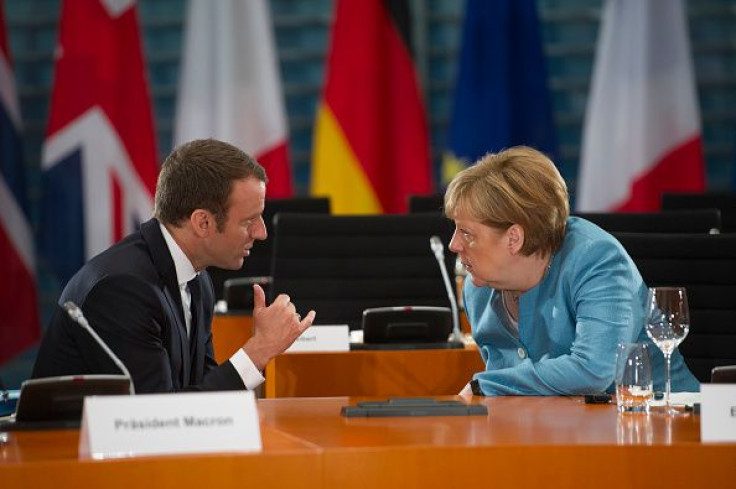G20 Summit: What To Expect From Talks On Climate Change After US’ Exit From Paris Agreement

All eyes will be on Hamburg where President Donald Trump is set to attend the G20 summit on 7-8 July. The summit has gained significance since German Chancellor Angela Merkel promised to make the Paris Agreement on climate change a part of the key agenda.
The group, excluding the U.S., is all set to endorse a new action plan to battle climate change despite opposition from the U.S president. Pacific Standard reported the other 19 countries are also expected to call out the United States government for opting out of the Paris Agreement, showing how dramatically America has isolated itself from the rest of the world.
There is also speculation the summit will test the rest of the world's resolve to implement the Paris Agreement in the face of U.S. withdrawal, according to Pacific Standard.
This comes amid reports thatTrump is seeking the formation of an alliance of fossil-fuel states led by the United States, Russia, and Saudi Arabia, while attempting to isolate emerging renewable-energy powers like Germany and China, all of them part of the G20.
Read: Climate Change Effects: Antarctica Ice Melt Forces Invasive Animals Into Threatening Territory
European countries have put on a united front, with the charge against Trump’s stance on climate change being led by Merkel. In a defiant speech to the German parliament, she stressed the importance of tackling climate change and slammed isolationism and protectionism in what was seen as a swipe at the U.S. leader. She laid the groundwork to get the two allies she most needed – Indian Prime Minister Narendra Modi and Chinese Premier Li Keqiang, hosting them in Berlin in May. According to the Guardian, if both these countries followed America in rejecting the Paris agreement, the whole process would have unraveled. Both countries have said they will not pull out of the treaty.
However, Euro News has stated her statements suggest her approach is conciliatory and pragmatic. “Because of the US decision to pull out of the Paris accord, there are of course areas where opinions differ, but the United States is an important part of the G20 so we will do anything to work together, without covering up the differences,” Merkel said. Any suggestion that Trump’s isolationist policy would be practiced against him at the gathering has also been brushed aside. Other European leaders including French President Emmanuel Macron have also expressed their displeasure with Trump’s isolationist policy, according to Euro News.
The Chairs of the Climate and Energy Taskforces of the G20 Engagement Groups released a joint statement ahead of the summit, saying they considered the decision of the U.S. government to pull out of the Paris Climate Agreement very “short-sighted and irresponsible”. They also asked the remaining 19 members to convincingly show their willingness to implement the Paris Agreement even without the U.S. The statement from the coalition of civil society groups came just a few days after Merkel’s rebuke.
Read: How To Save The World: 6-Point Climate Change Plan Laid Out By Scientists, Policymakers
Meanwhile, reports suggest that the UK looks set to miss a key renewable energy target in the latest sign that the government is backsliding on the fight against global warming. The report, which is the latest update on progress made in this regard, said the UK had reached 8.9 percent of the targeted 15 percent in 2016 and admitted hitting the 2020 target would be challenging. The Independent quoted Alasdair Cameron, a renewable energy and climate campaigner at Friends of the Earth, saying there was a danger that other countries might think the UK was cozying up to the US president. This analysis is especially worrisome in light of debates about the latter’s influence in the upcoming summit.
The U.S. has been the biggest financial contributor to the United Nations Framework Convention on Climate Change as the contributions are based on national wealth. The country has also provided a huge chunk of the funding for the Inter-governmental Panel on Climate Change, which provides the scientific basis for international climate policy. However, Trump’s stance on the issue has jeopardized all funding programs and prospects of talks in the future. It remains to be seen if the other countries would emerge from the shadow of the U.S. stance and ratify the Paris Agreement in the summit this year.
© Copyright IBTimes 2024. All rights reserved.











